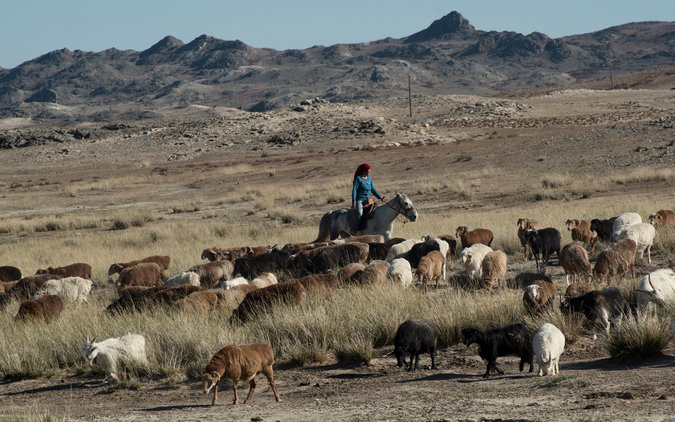For the New York Times, Andrew Jacobs looks at the consequences of the Chinese government’s policy to resettle nomadic groups in Qinghai, Tibet, and Inner Mongolia into static housing, where many people suffer unemployment and other issues as they attempt to adapt to a new way of life:
In what amounts to one of the most ambitious attempts made at social engineering, the Chinese government is in the final stages of a 15-year-old campaign to settle the millions of pastoralists who once roamed China’s vast borderlands. By year’s end, Beijing claims it will have moved the remaining 1.2 million herders into towns that provide access to schools, electricity and modern health care.
Official news accounts of the relocation rapturously depict former nomads as grateful for salvation from primitive lives. “In merely five years, herders in Qinghai who for generations roved in search of water and grass, have transcended a millennium’s distance and taken enormous strides toward modernity,” said a front-page article in the state-run Farmers’ Daily. “The Communist Party’s preferential policies for herders are like the warm spring breeze that brightens the grassland in green and reaches into the herders’ hearts.”
But the policies, based partly on the official view that grazing harms grasslands, are increasingly contentious. Ecologists in China and abroad say the scientific foundations of nomad resettlement are dubious. Anthropologists who have studied government-built relocation centers have documented chronic unemployment, alcoholism and the fraying of millenniums-old traditions.
[…] The government has spent $3.45 billion on the most recent relocation, but most of the newly settled nomads have not fared well. Residents of cities like Beijing and Shanghai on average earn twice as much as counterparts in Tibet and Xinjiang, the western expanse that abuts Central Asia. Government figures show that the disparities have widened in recent years. [Source]
In 2013, Human Rights Watch issued a report on the damage done to Tibetan communities forced into new housing by the government. Tibetan writer Woeser talked to Tibetan nomads about the cultural changes they experienced after being rehoused by the government.
In January, herders in Inner Mongolia staged protests over government reclamation of grazing lands.








